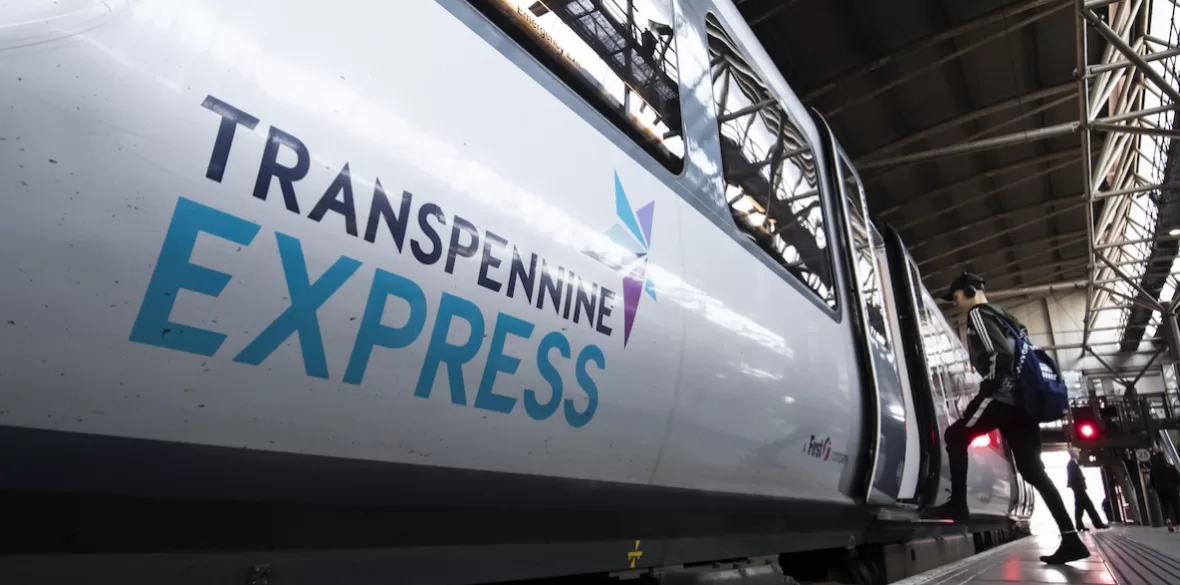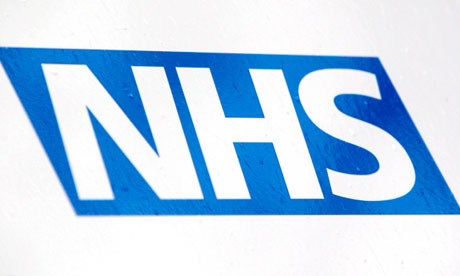Original article by Cori Crider republished from openDemocracy under a Creative Commons Attribution-NonCommercial 4.0 International licence.
OPINION: Once Palantir is inside our health service, it will be hard to get rid of. The NHS should think carefully
This week I debated the future of the NHS with a cardboard cutout. This was, I confess, a bit of a let-down: Louis Mosley, the UK head of Palantir, looked very fine in 2D, watermelon cocktail in hand, but we’d hoped for the man himself. He’d agreed to debate Foxglove about the NHS’s massive new plans for our health data, only to pull out at the last minute, citing ‘commitments in eastern Europe’. I suspect the real reason is that the government leant on him – and the conference organisers – to scuttle the debate. So much for public engagement.
Funny cutouts aside, this is a serious matter. The NHS, as we can see from the strikes this week, is in a historic crisis. As well as 120,000 care vacancies, the NHS has over 3,000 vacant tech roles – which stops the service from evolving to meet future needs. But instead of gripping this crisis with a credible workforce plan, the government proposes to spend nearly half a billion pounds on a database.
This is what I was hoping to debate with Louis. The government wants to give his spy-tech firm, Palantir, the contract to manage a vast new ‘Federated Data Platform’. If it goes ahead as envisaged, the FDP will be the largest single point of access to patient data this country has ever seen. It’s a pity it was left to me and Dr Marcus Baw, a GP and health IT specialist, to debate this system – because there’s so much the government won’t say about it. Like exactly what shape it will take or what purposes it will eventually serve; what it will eventually cost; who will have access; or how patient choice and consent will be honoured.
The proposed system is vast. The aim is for it to sweep in hospital, GP, even social care records – and make all this patient data available to government planners and others.
Now, parts of this are all to the good. The NHS badly needs to make better and more efficient use of patient data for the good of the NHS and of patients; there are inefficiencies in the system that urgently need fixing. But we, and many experts within the NHS we speak to, have serious concerns about the design of this contract: about whether the procurement has been fair; whether the system will work as designed; and whether Palantir, which is mainly known for supporting CIA drone attacks, predictive policing and deportation raids, is a remotely appropriate partner for the NHS.
That’s why Foxglove (with openDemocracy) brought multiple legal cases seeking to shed light on this shadowy spy-tech firm’s beachhead in the NHS since their very first £1 no-bid pandemic contract. It’s also why 50 other groups have signed the ‘No Palantir’ pledge, saying a company whose values are so manifestly opposed to those of the NHS has no place handling so much sensitive patient data.
Having one supplier to join up data and analyse it risks creating a dangerous private monopoly over vital NHS infrastructure
But there are deeper issues with the FDP. It runs the risk of stealing oxygen – and funding – from other critical work already underway to help the NHS join up its patient data for good. For example, openSafely, a flagship national data platform for health research, was developed by Ben Goldacre and a team at Oxford and was used for vital Covid research. It’s completely open source, safe and lights a way forward for trustworthy health research. It also costs a fraction of what Palantir does.
What’s more, pushing so much access and control to the centre may not make sense. For some issues – vaccination, workforce planning – there is a clear case for a national solution. But ultimately, most care is delivered locally and planned regionally. There are already places, such as London, that have pioneered solutions to pool patient data to plan care better – at a fraction of the FDP’s cost. It is far from clear how this will interact with the FDP, or whether it can survive the new system.
Other competitors – like a UK consortium of universities and open-source firms that are apparently bidding for the deal – would have loved a fair crack at the FDP contract. But let’s be honest: they probably haven’t got a snowball’s chance at beating Palantir’s incumbent advantage, won through a mixture of insider influence and watermelon cocktail lobbying.
Once Palantir’s in, it will be hard to get it out. The technical architecture is proprietary – and other government agencies have struggled to get off Palantir when they’ve tried. Having a single supplier to help you join up data and analyse it also risks creating a dangerous private monopoly over vital NHS infrastructure.
Indeed, if you take Palantir chief executive Alex Karp at his word, that’s the plan. “We are working towards a future where all large institutions in the United States and its allies abroad are running significant segments of their operations, if not their operations as a whole, on Palantir,” he wrote. “Most other companies are targeting small segments of the market. We see and intend to capture the whole.” That reads like an express statement of an intention to seek monopoly power.
It’s also clear they’re in it to profit. Their chief technology officer, Shyam Shankar, recently wrote: “The problem with defen[c]e contracting is not the popular narrative that contractors make too much money. It is actually that they make too little money… Innovators will need outsized profits to motivate progress.” Monopoly and profiteering may be good for Palantir’s share price, but they sit uncomfortably with the ethos of a public health service.
Joining up the NHS’s disparate health data systems better will present stiff challenges, and the NHS will face trade-offs – buying in consultants may be easier in the short term, for example, but may prove more expensive in the long run. But at the moment the government is stonewalling legal letters asking even basic questions about the FDP. And they are also creating facts on the ground that could be seen to favour Palantir. The legal basis for all of this, now that the pandemic’s suspension of protections for patient data has lapsed, is unclear.
People care deeply about how their health data is used. We go to the doctor to share our worries, our fears, and our pain – and if we don’t trust that conversation to be private, we may not go at all. People want to feel safe to contribute their health data for the good of the NHS – but when the government runs out ahead of patient trust, overhauling patient data systems without explaining what it wants to do, who will see the data, and what safeguards there are, people baulk. In 2021 more than a million people in a month opted out of sharing their health data because they didn’t trust the government’s last plans to pool their GP records. The history of the NHS is a boneyard of such schemes: massive, expensive white elephants that all failed because the government didn’t take the time to get the governance or consent right.
It is past time for the government to learn from these mistakes. We can build a better future for our patient data – if we take the time to design carefully, honouring patient choice and thinking about what system will serve the NHS for the long haul. Anything less is likely to fail and set the cause of progress back another five years.
Original article by Cori Crider republished from openDemocracy under a Creative Commons Attribution-NonCommercial 4.0 International licence.



.webp)

